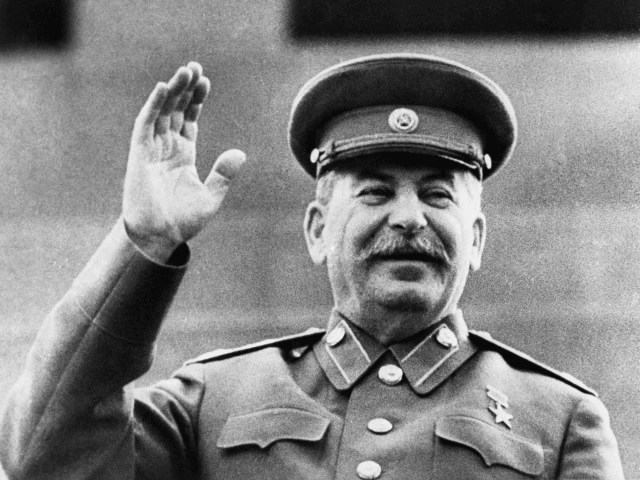Stalin wasn’t all bad, you know.
Sure he was a murderous thug responsible for around 50 million deaths, while reducing the rest of the population to a state of misery, poverty, and near-permanent terror. Sure his collective farming policy turned breadbaskets into famine-starved hellholes where cannibalism was rife and his Five Year Plans destroyed what was left of the Russian economy after Lenin.
But let’s not forget the upsides: he “ended the exploitation of peasants by greedy landlords and to rid of the greedy and troublesome kulaks”‘ and he “helped peasants work together”.
This, amazingly, is what children are being taught in British schools. The quotations come from the GCP GCSE Modern World History revision guide and indicate the kind of answers kids are expected to give in their history exams when talking about Stalin’s collectivisation of farms.
Apparently, this is part of a method where they are expected to discuss the Pros and Cons of each issue.
I learned this from an article in The Daily Telegraph by James Bartholomew, the financial journalist and author, who happens to be the guest on my Delingpole podcast this week.
Like me, Bartholomew is an ardent believer in a minimal state. That is, he thinks that whenever government tries to make things better it almost invariably makes things worse – and that the state is, therefore, best cut out of the equation as often as humanly possible.
That history is teaching lunacy is a fairly typical consequence of excess government. In a free education market, where anyone could set up a school, it’s somewhat unlikely that the history curriculum would allow the promulgation of such outrageous left wing propaganda.
Stalin was loathsome – directly responsible for more deaths even than Hitler. Yet schools that – as Bartholomew notes – would never dream of asking kids to talk about the Pros of the Holocaust somehow feel it’s OK to look for some of the positives in this sadistic Communist tyrant. Why?
Partly because in Britain – as in the U.S., where Betsy DeVos has arrived as Education Secretary not a moment too soon – schools have been skewed by the values of the public sector which, like those of public sectors everywhere, are unerringly left wing.
Very few parents would wish their child to be taught that Stalin had his upsides. But few get much choice in the matter because there is no competitive market in schools: bad teachers are rarely sacked (as they would be in private sector industries, but not in the heavily unionised state sector) and if the school in your area is failing and teaching your children badly there’s probably nowhere else nearby you can move them.
Also, the fact that you don’t pay your kids’ state school fees – the “government” does – means you probably have lower expectations (accompanied perhaps by a false sense of gratitude for a service provided “free”) than you would if the fees came more obviously out of your pocket.
For these and many other reasons, our state schools will go on failing to improve and teachers will go on indoctrinating our children with left wing propaganda. (Though there are exceptions: one of the things I’m very much looking forward to, sometime this year, is paying a visit to one of the state school sector’s shining successes – Katharine Birbalsingh’s Michaela Community School. I’ll be recording a podcast there.)
But it’s not just bad schooling which is an inevitable product of the welfare state. Let’s not forget the welfare state also creates bad healthcare, bad housing, unemployment, poor care for the elderly and economic stagnation.
There is, in fact, virtually nothing good to be said for the welfare state. Which might sound heartless – nay, if you’re a lefty and you don’t know what the word means, fascistic – but which is borne out by the hard figures and very thorough research of Bartholomew’s two books on the subject The Welfare State We’re In and The Welfare of Nations. (Here’s the U.S. version published by Cato)
As a way into this surprisingly fascinating subject why not listen to what James Bartholomew has to say on my podcast.
It’s really not because we’re uncaring that we classical liberals loathe the welfare state.
It’s because we care too much…

COMMENTS
Please let us know if you're having issues with commenting.